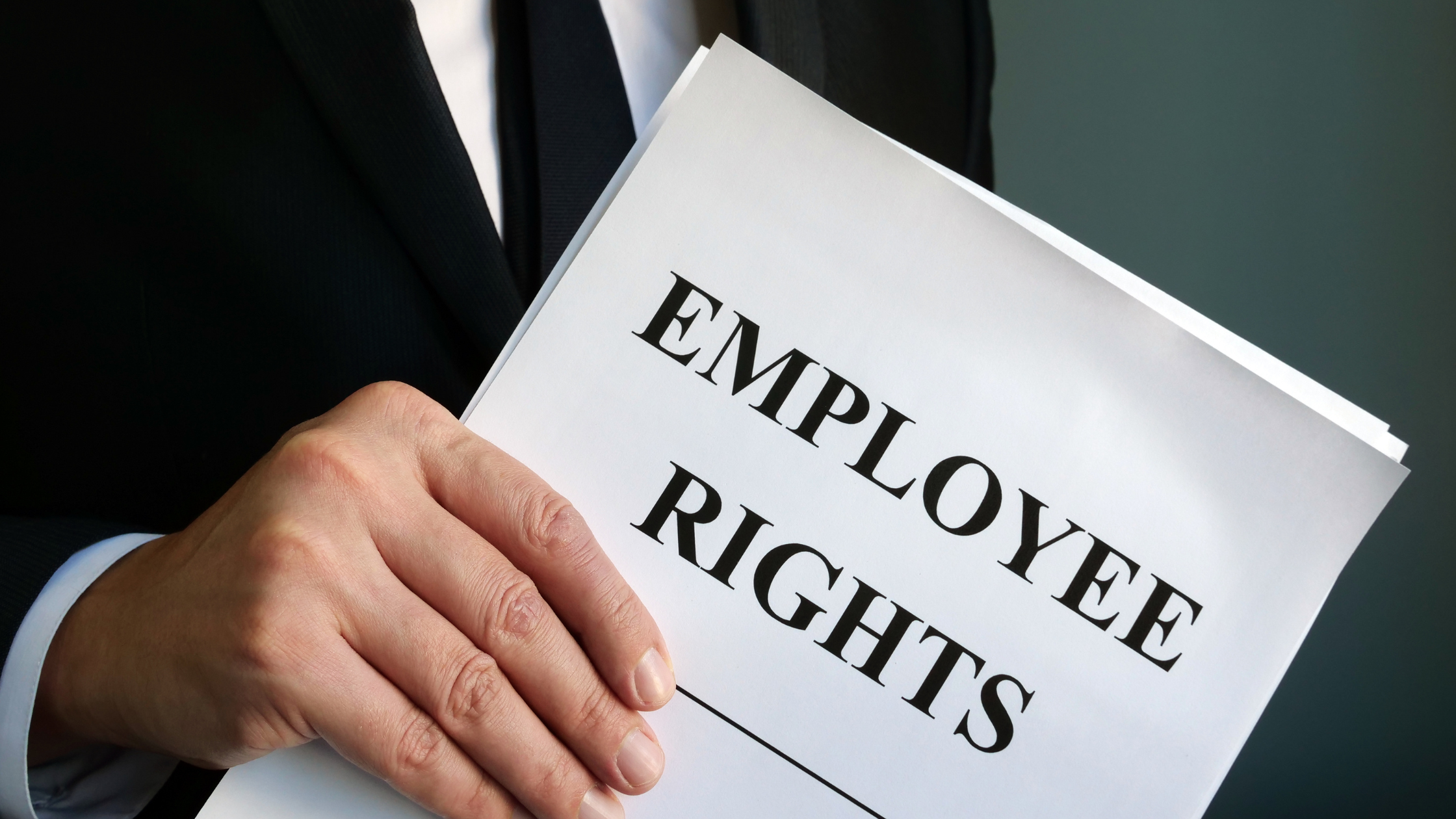Today we’re looking at helping our readers master the skill of interviewing candidates. It may sometimes be a daunting task if you haven’t done it before. Speaking on the phone is one thing, but managing to professionally conduct yourself as an interviewer is a whole different ball game.
So, we will be discussing the benefits of interviewing, what you can do to prepare for one, and how you can conduct yourself during the interview.
Why is a job interview important?
Interviewing is typically a formal conversation that occurs between a potential employer or their representative and a candidate looking for a job. It’s considered to be one of the most important steps during the recruitment process as it provides the perfect opportunity for both parties to interact.
Interviewing candidates is something which becomes a second nature for recruiters after conducting them numerous of times – whether you’re recruiting at an agency or you’re an internal recruiter for an organisation. Either way, successful interview practice is essential to ensure that you’re building the right muscle memory to find the perfect candidate for your role.
It may be a nail-biting experience when you conduct your first interview, so, we’re here to provide you with the best tips on conducting your very own interview with a candidate.
Benefits of interviewing:
- Get more information about a candidate. Interviewing allows you to collect as much information as possible in an allocated time. You can ask the candidate questions about their background, work experience and education. It’s also a great opportunity for you to understand their intelligence, personality type, social behaviour, interests and communication abilities.
- Helps to fill information gaps from the job application. You may find that a candidate’s CV and cover letter may limit the information you need to know when hiring for a certain position. An interview can help you cover any gaps and collect the relevant details in person (or via video call).
- Select an appropriate candidate. Through interacting with a candidate in an interview, it can help you determine whether or not they are the right person for the job. It allows you to ask them questions and judge them on a real-time basis to learn more about their suitability for the position.
- Can promote rapport. Interviewing can be used as a PR tool to help you promote your organisation as a respectful and welcoming one. Through interviewing a candidate and leaving a good impression, you can increase your chances of attracting top talent in the future.
How to prepare for a job interview

You’ve posted your job ad and have found a selection of candidates who you’d like to interview. If you have a great interview, it will allow you to learn as much as possible about the candidate, and to provide the candidate with as much information about the organisation as possible. A successful job interview will really portray to the candidate that this is the perfect place for them to work.
While the candidate is trying to sell themselves to you, an interview is the perfect way for you to sell yourself – and your company – to them… So, it’s important you thoroughly prepare for the interview.
1. Allow for sufficient time in a sufficient location
Make sure you set aside a specific slot in your calendar to conduct the interview. Set up a convenient location where you can expect there to be no interruptions. This will guarantee your concentration and can also give a great first impression to the candidate.
2. Write a fantastic job description
Making the candidate aware of the fundamentals pre-interview will make sure no one’s time is wasted. Through having a thorough job description which outlines the day-to-day duties of the role, along with a salary and working hours, the candidate will know off the bat whether the job is something they’re looking for. If you have a poor job description and attempt to cover the discrepancies during the interview, the candidate may realise that the job isn’t for them and walk out of the interview!
3. Read CVs carefully
You must study the CV as much as possible beforehand. This provides you with an insight into their details in advance, which allows you to prepare for relevant questions to ask. However, you should also take a copy of the CV into the interview to refer to.
4. Identify the qualities you are looking for
A CV will only tell you so much about a candidate, so from identifying the qualities you need you will be able to verify these during the interview. You can ask a candidate how they have acquired the desirable quality and for them to explain a scenario where they have used it.
5. Write down several questions
Having a set of questions to hand is one of the best tools in an interview. You can use these questions to guide the interview, but to prompt the candidate to explain further with open ended questions. Start your questions with “how”, “why”, “what”, “when”. Make sure your questions will get you the relevant answers which you’re looking for in the interview! We have compiled our own list below of typical interview questions for inspiration.
Questions for interviewing candidates:
| What do you know about our company, and why do you want to work here? |
| What skills and strengths can you bring to this position? |
| Tell me more about your current job. What do you do on a day-to-day basis? |
| Why are you wanting to leave your current job? |
| Do you work best alone or in a team? |
| Can you tell me a time where you demonstrated good leadership skills? |
| Can you tell me a time where you worked well in a team? |
| What has been most challenging in your career? |
| What’s the most interesting project you’ve worked on in a past position? |
| What salary amount are you looking for? |
| Where are you willing to travel to for work? |
| What do you like doing outside of work? |
| Why do you think you’re ideal for this position? |
| Do you have any questions for me? |
6. Consider “cultural fit”
Recognise what your company culture is, and maybe write this down. It will be important to consider whether or not the candidate will be suitable for your company culture – will this person be viable for the long term? Try not to obsess too much over this point though, as you can be vulnerable to judging someone based on first impressions – people can adjust!
7. Reduce stress
While you may be stressing about conducting your first interview, a candidate is definitely stressing about whether or not they’ll get the job! Try and make it less stressful for them. You can do this by sending over an email highlighting what will be discussed in the interview, explain dress code, and meet the interviewee at a convenient time for them. Your goal is to help the candidate feel as comfortable as possible, so that the interview can be productive (and allows them to be themselves).
How to conduct an interview

So, we’ve discussed how you can prepare for a job interview, now we can talk about what you can do during a job interview. Here are some steps on what you can do to make sure the interview is a productive one:
1. Introduce yourself
Don’t just say “hello my name is…”, you need to elaborate more – explain about the organisation and your role in the organisation. Also, try and give off a great first impression with a tidy interview room.
2. Set the stage
Tell the candidate your expectations for the interview. Remember that the candidates will watch and follow your lead, so you should use your body language and tone to establish your expectations. Try and use language and mannerisms which reflect the values of your company.
3. Review the job description
Discuss the specific details about the job description. Talk about whether the role is permanent, temporary or contractual to let the candidate decide whether they fit well into the position. Talk about the salary, the day-to-day activities, the working hours and location.
4. Ask general questions
Find out about the candidate’s background and why the position interests them, use our example questions above for inspiration!
5. Review the CV
It’s important to refer to several past positions on the candidate’s CV which are relevant to the job. Try and discover various strengths tied to the prior roles – including achievements – as well as challenges they faced. If there are any employment gaps, be sure to ask them about what they were doing during this period. Also, ask them reasons for leaving their current or previous jobs.
6. Focus on questions about the job
Make sure that your questions expose the relevant specific skills and qualifications which a candidate may apply to your position. Don’t waste too much time on irrelevant questions!
7. Sell the job
Use this job interview as a strategy to sell your vacant position. Only do this in the second half of the interview – if you are selling too much early on, then it may put the candidate off, or on the flipside, you can sell them a position which they may not even be a good fit for. Ask them if there’s anyone on the team they’d like to meet, show them around the office, make it fun!
8. Offer the candidate a chance to ask questions
This will allow candidates to decide on whether the company and job is a good choice for them. Their questions can also help you decide whether the candidate has prepared for the job interview, and whether they are genuinely interested in the job.
9. Provide a recruitment process timeline
At the end of interviewing, be sure to tell the candidate what your next steps are. Let them know when they can expect to hear back from you, and when they’ll know if they were successful or not. This prevents them to be waiting anxiously to know whether they got the job.
In Summary…
We hope this has been useful for those of you waiting to interview a candidate. Remember to prepare, put on a smile, ask plenty of questions, and make the candidate feel welcome!
Don’t forget to subscribe to our RekkTalk Newsletter, visit our RekkBlog, and follow us on LinkedIn and Facebook!
By Leon Simpson – Company Director at Rekkruut



